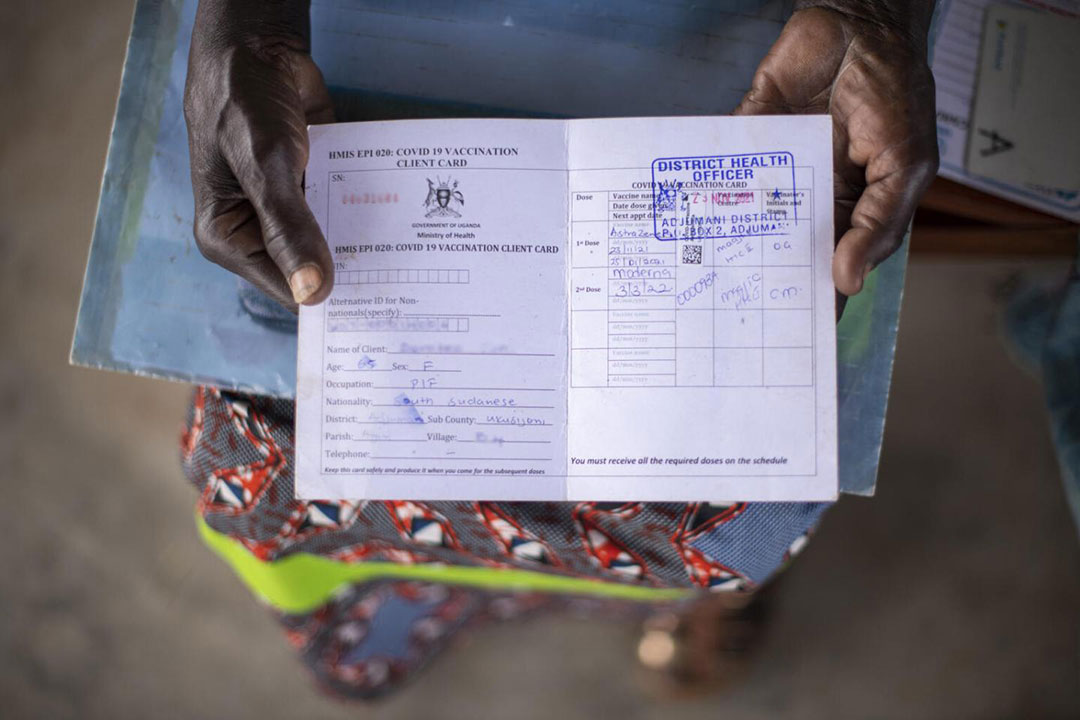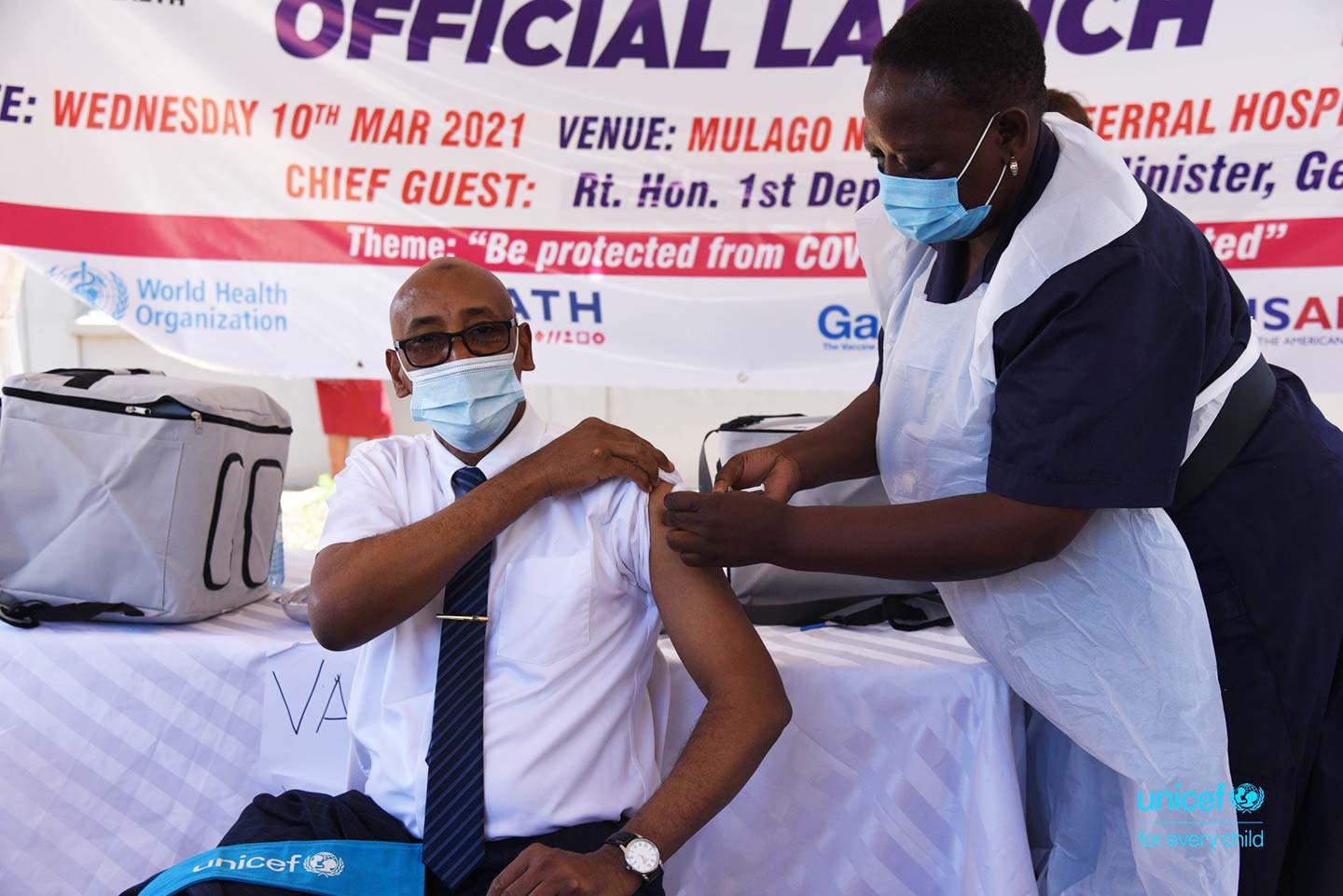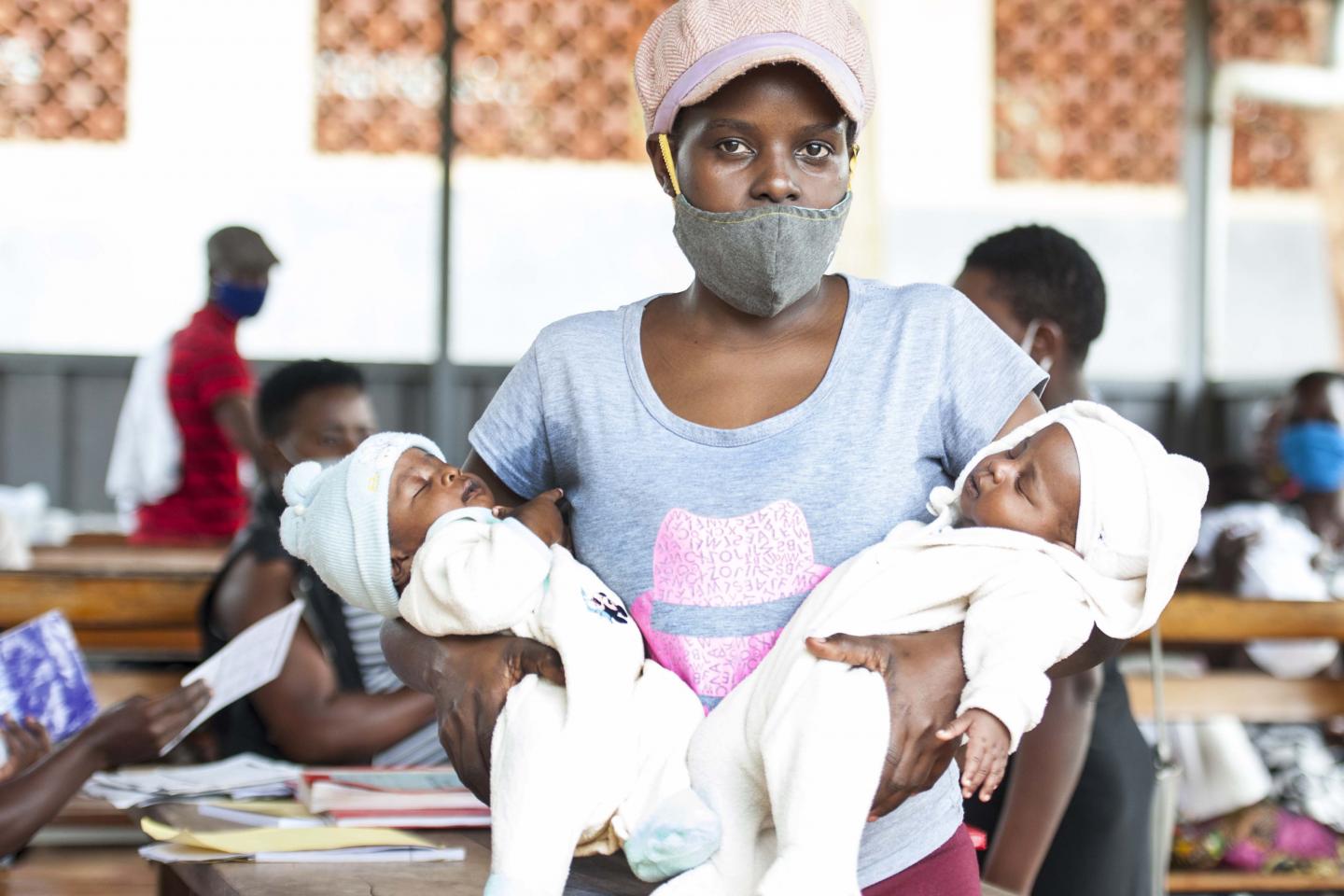Health workers use special days to reach every child with life-saving vaccines
Not even the COVID-19 pandemic will stop them.
- 4 December 2020
- 5 min read
- by UNICEF Uganda
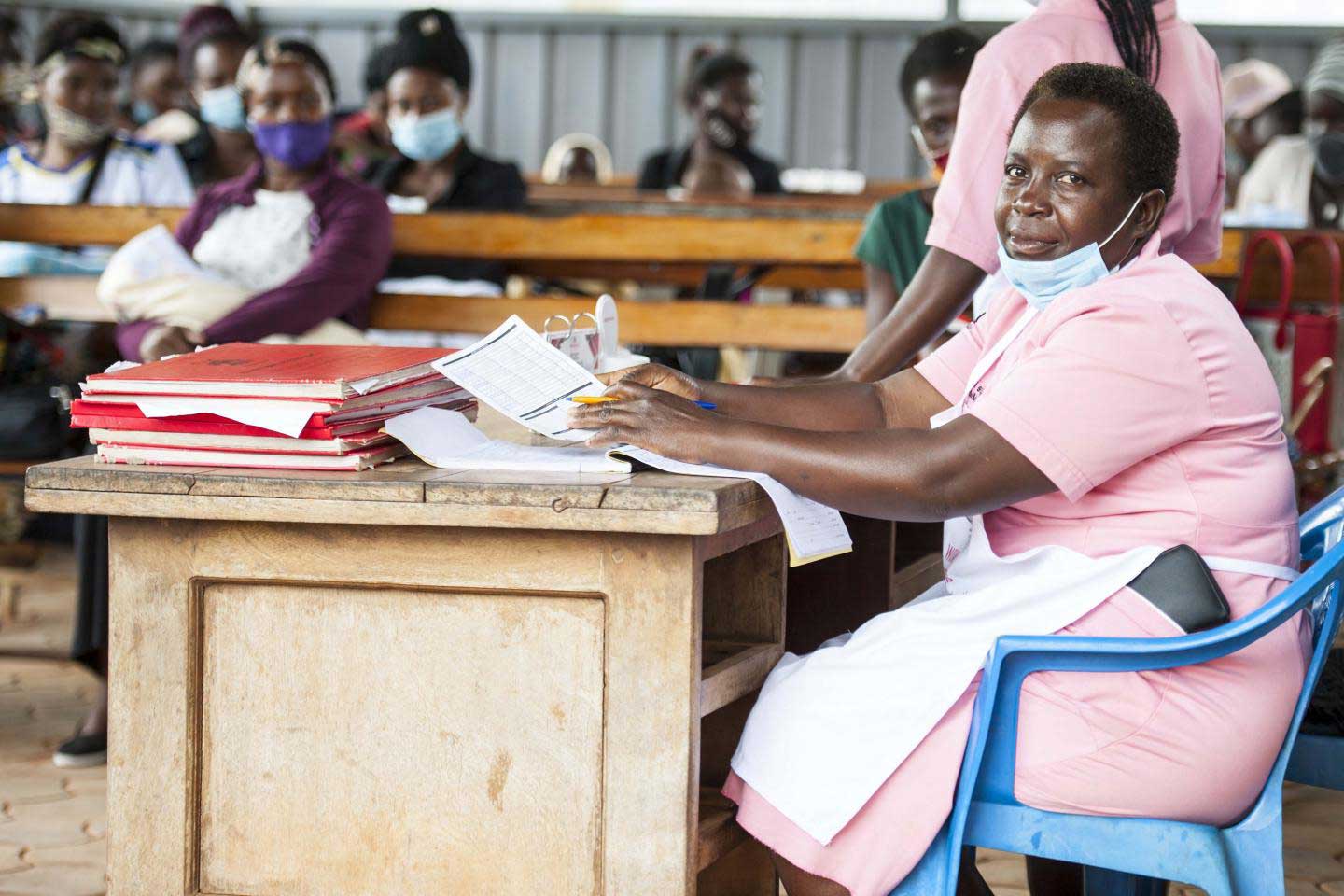
In Uganda, April and October are months dedicated to reaching every child and woman with critical health care services like catch-up vaccinations, deworming and vitamin A supplementation – in addition to family planning services and general health education. These special days are commonly known as Integrated Child Health Days.
Not even the COVID-19 pandemic will stop health facilities from observing these critical days. During these months, communities are always mobilized and, on this cold Tuesday morning (20 October) at Komamboga Health Centre III, mothers trickle in with their babies warmly wrapped in fleece blankets and the older ones in warm clothing. Most of the mothers have come for immunization services.
UNICEF, through the Ministry of Health, provides the vaccines and ensures the cold chain equipment is available to keep the vaccines safe, thanks to funding from Gavi.
We meet Sister Allen Nakanyike, a midwife and in-charge of the Young Child Clinic at the facility. The cold weather does not deter her from serving the children and mothers. She throws a scarf around her neck and starts her work. “I am a midwife, I love my profession, and my profession is all about children. That’s why I do what I do.”
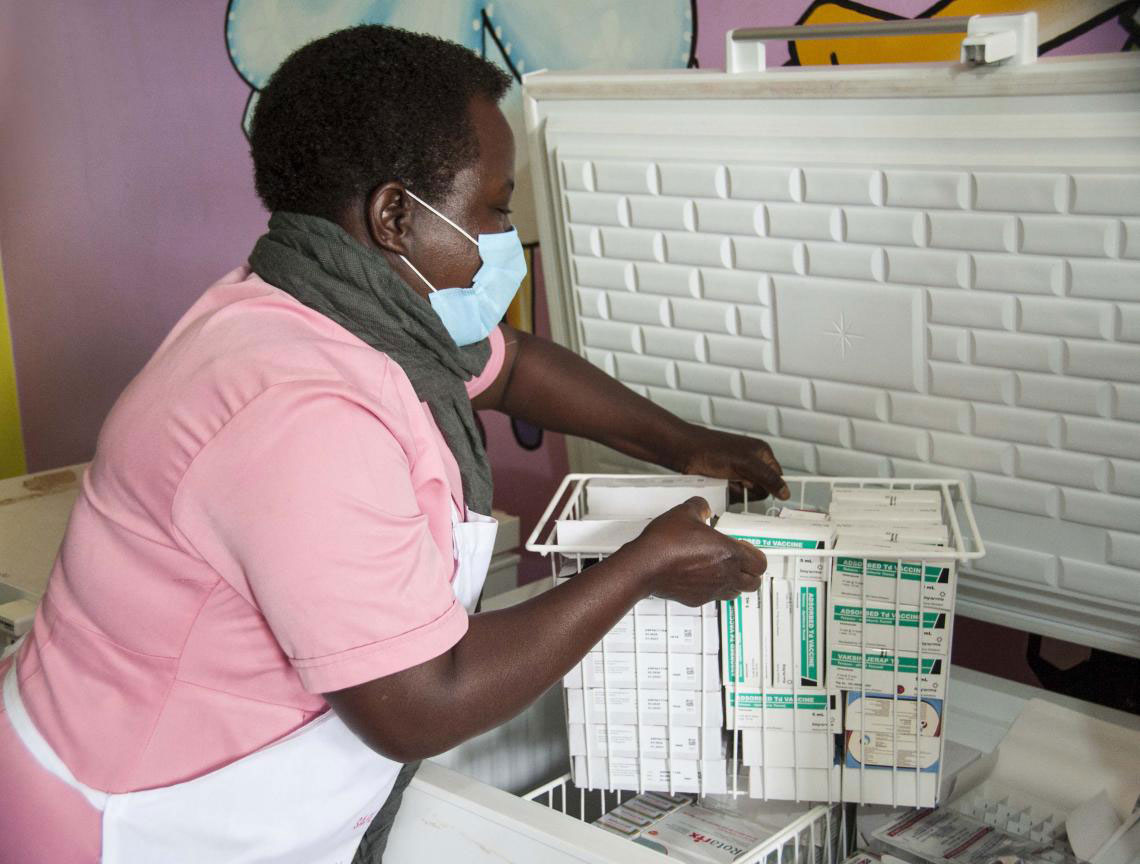
As she prepares vaccines, syringes, cotton wool and all she needs for the day, Sister Allen explains that Integrated Child Health Days are very busy for the staff. In addition to immunizing the children and attending to mothers at the health facility, they go out to under-served communities with vaccines and services. “Just last week, we were in one of the most populated zones to make sure that those children too are reached.” However, the days do not replace the regular immunization routine services but rather compliment them to ensure every child is reached with life-saving vaccines.
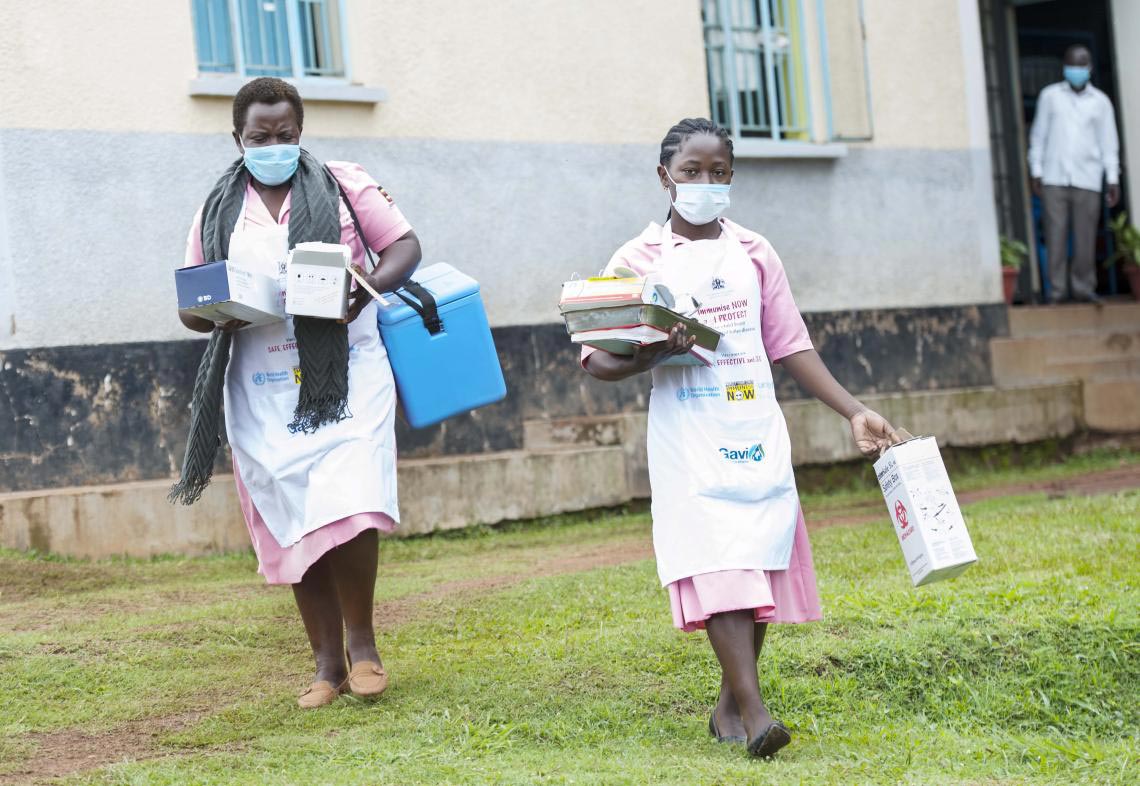
When all is ready, Sister Allen and her team set off to the immunization shelter where the mothers are waiting with their little ones. The vaccines provided are safe and effective and all services are free.
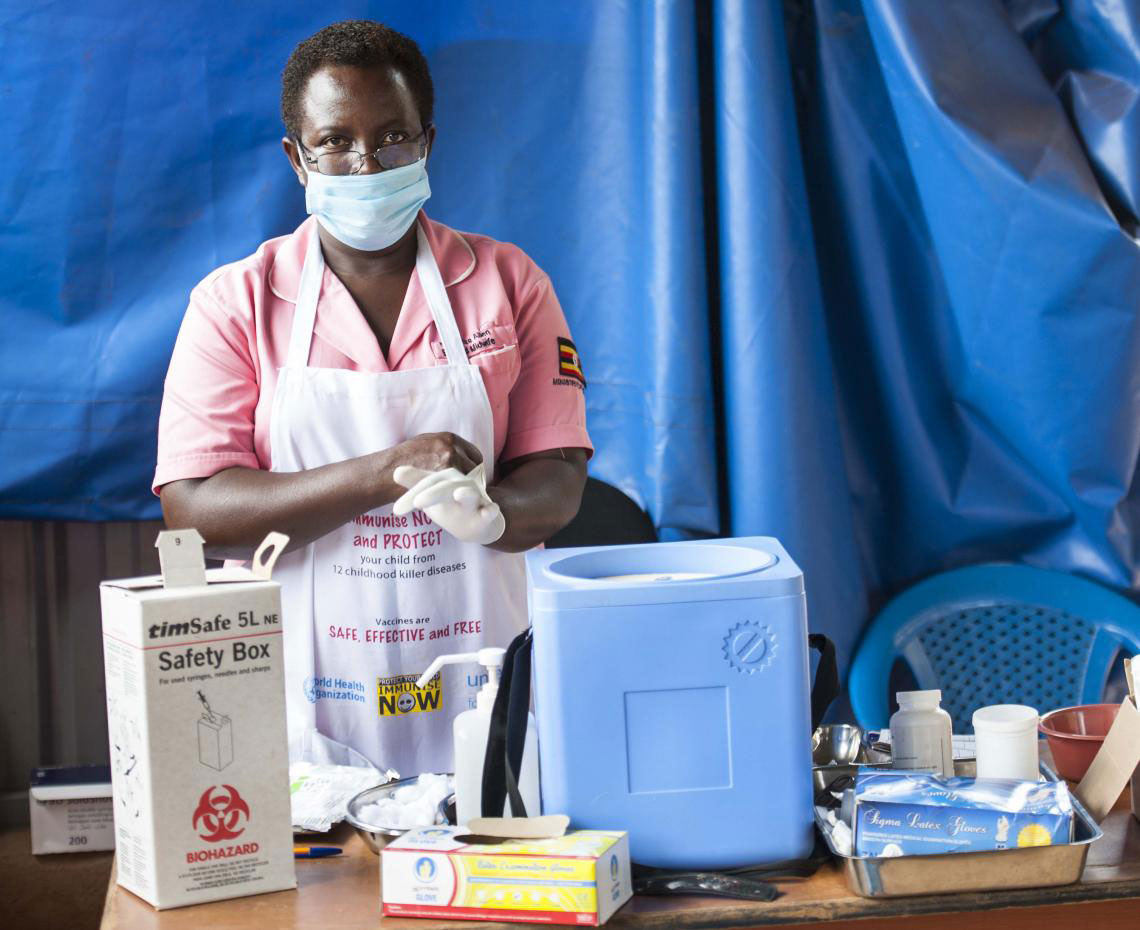
During the COVID-19 pandemic, safety for health workers and communities they serve is more paramount than ever before. Sister Allen wears gloves and a mask before she begins her work. All health workers have been provided with the necessary personal protective equipment to protect themselves and their clients from COVID-19 as they continue to deliver critical health services.
We see many mothers a day, so I have my fears. We ensure mothers wash their hands with soap, have masks and maintain social distancing.
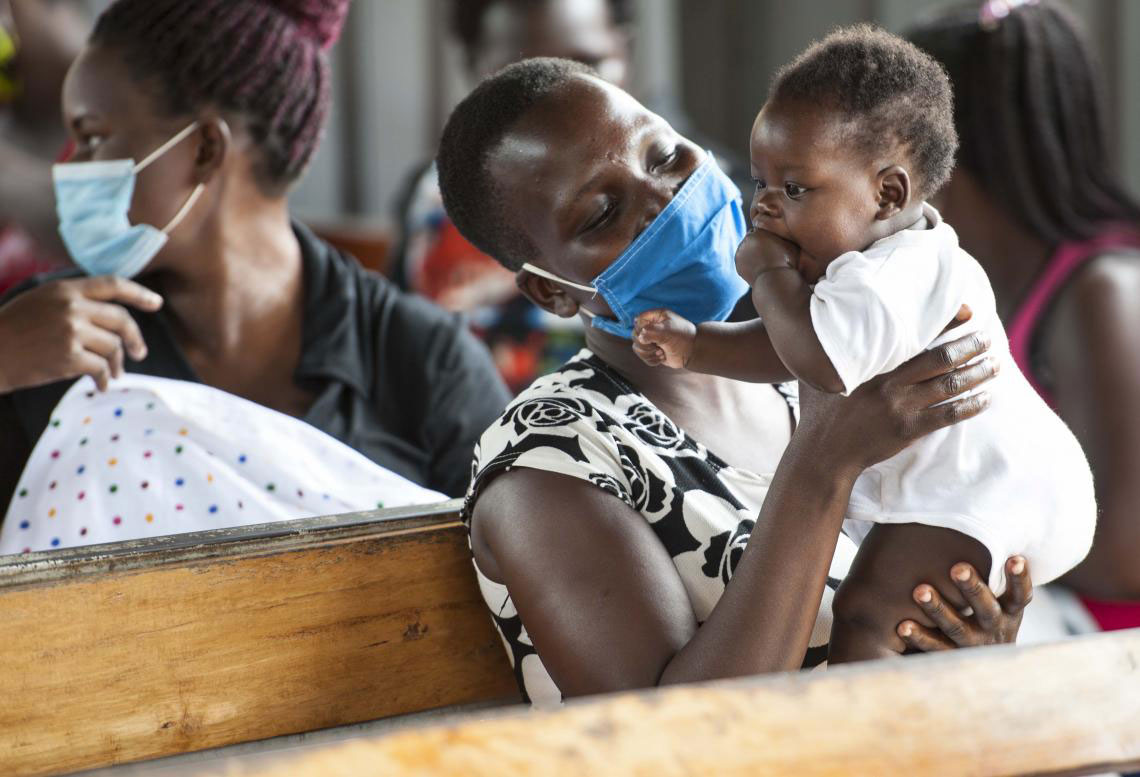
The mothers and caregivers are also observing all the precautionary measures. They are wearing masks and are practicing social distancing. No one enters the immunization shelter without a mask.
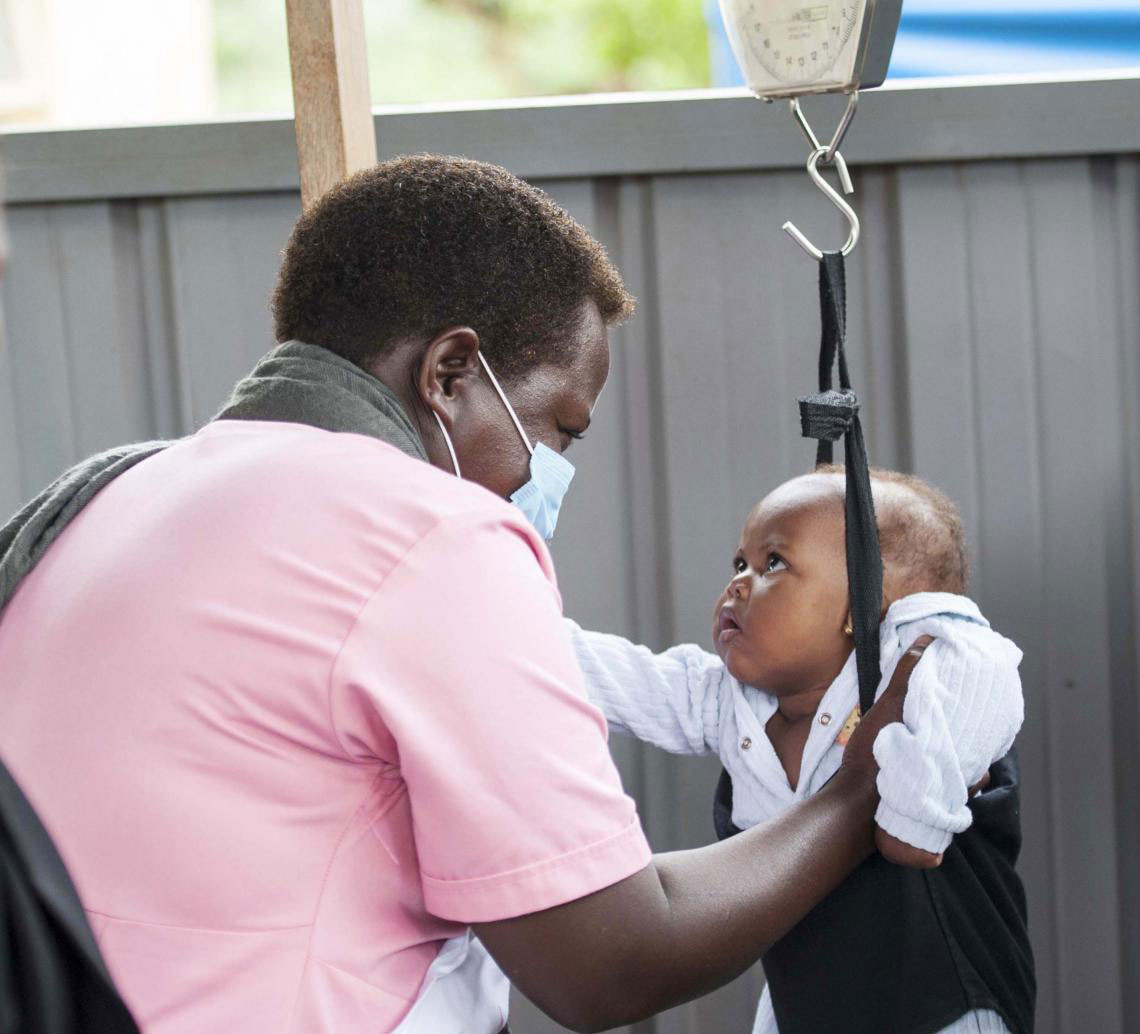
Before the children are immunized, they are weighed to monitor their growth. Screening for malnutrition for children aged 6 to 59 months is important, with nutrition education among the key family care practices promoted during the immunization sessions. The other practices include exclusive breastfeeding from birth to six months; home sanitation and personal hygiene; and sleeping under insecticide-treated nets to prevent malaria, among others.
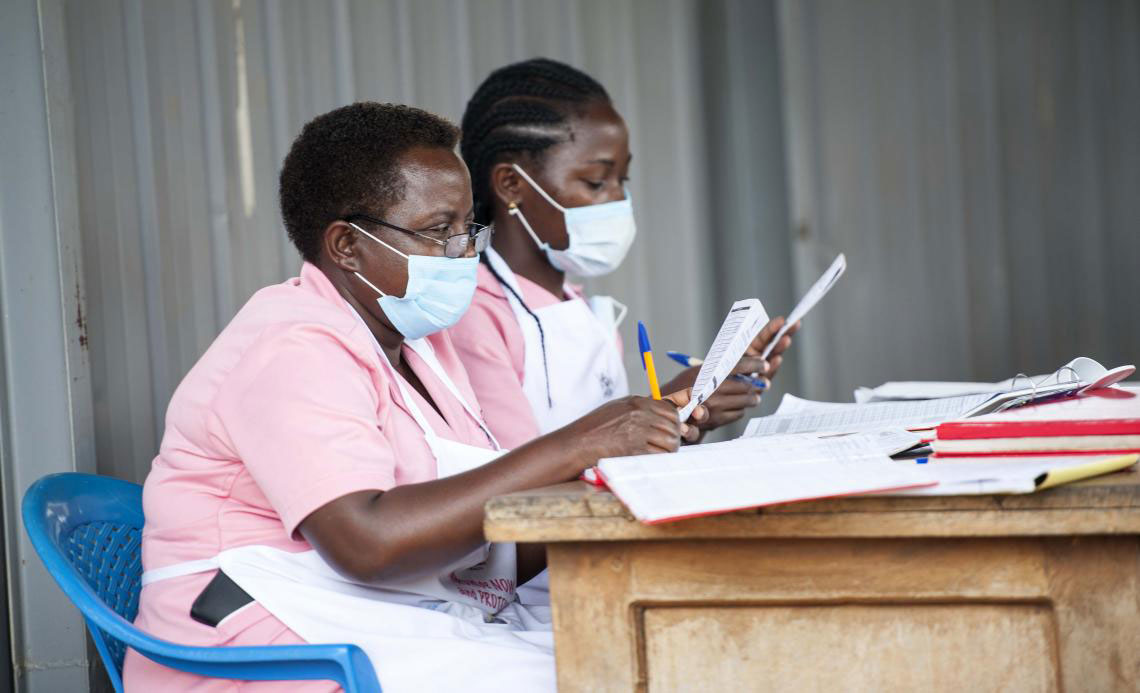
It's immunization time. Sister Allen and Sister Ebenezer review immunization cards shared by the mothers. During routine immunization days and Integrated Child Health Days, mothers and caregivers are encouraged to come for services with their children’s immunization cards. This helps the health workers know which vaccine the children will need and what they have received at the last immunization visit. However, those without cards are also immunized.
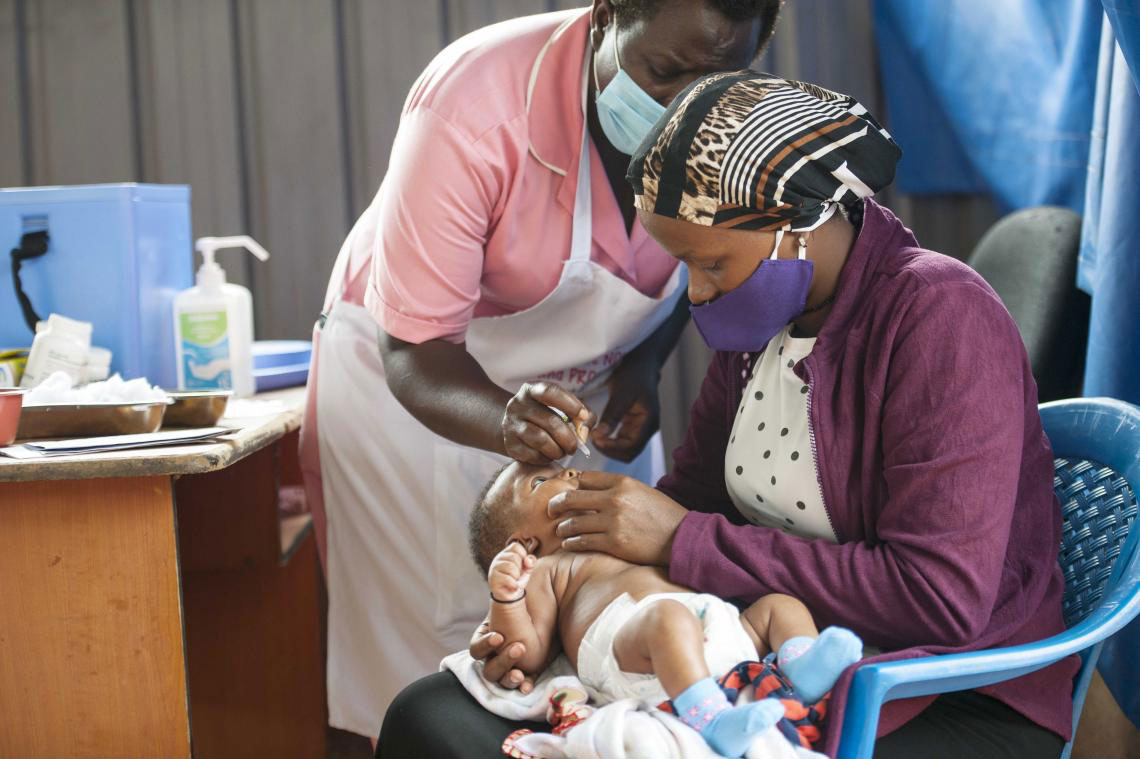
A child receives polio drops during the immunization session. According to Sister Allen, more than 50 children are immunized every day.
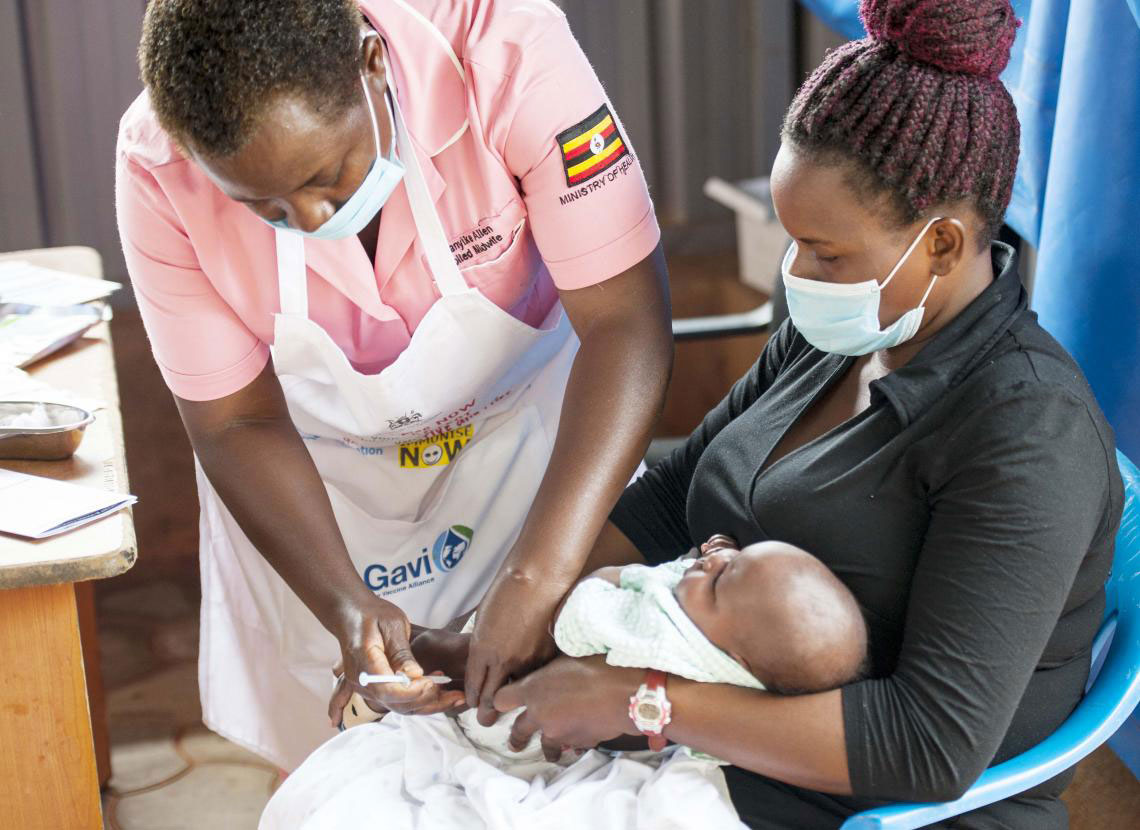
A child receives a vaccination shot during the Integrated Child Health Days conducted at Komamboga Health Centre III. Other services provided during these special days include: routine and catch-up immunization for children under the age of 1; immunization of 10-year-old girls against cancer of the cervix with human papillomavirus (HPV) vaccine; immunization of girls and women (15 to 49 years) against tetanus and diphtheria with the TD vaccine; hepatitis B screening and vaccination for those 18 years and above; vitamin A supplementation for children aged 6 to 59 months; deworming for in-school and out-of-school children from 1 to 14 years; early infant diagnosis of HIV for children from 6 weeks to 18 months; eye screening for children from 1 month to 15 years; and immunization of girls and women against tetanus from 15 to 49 years.
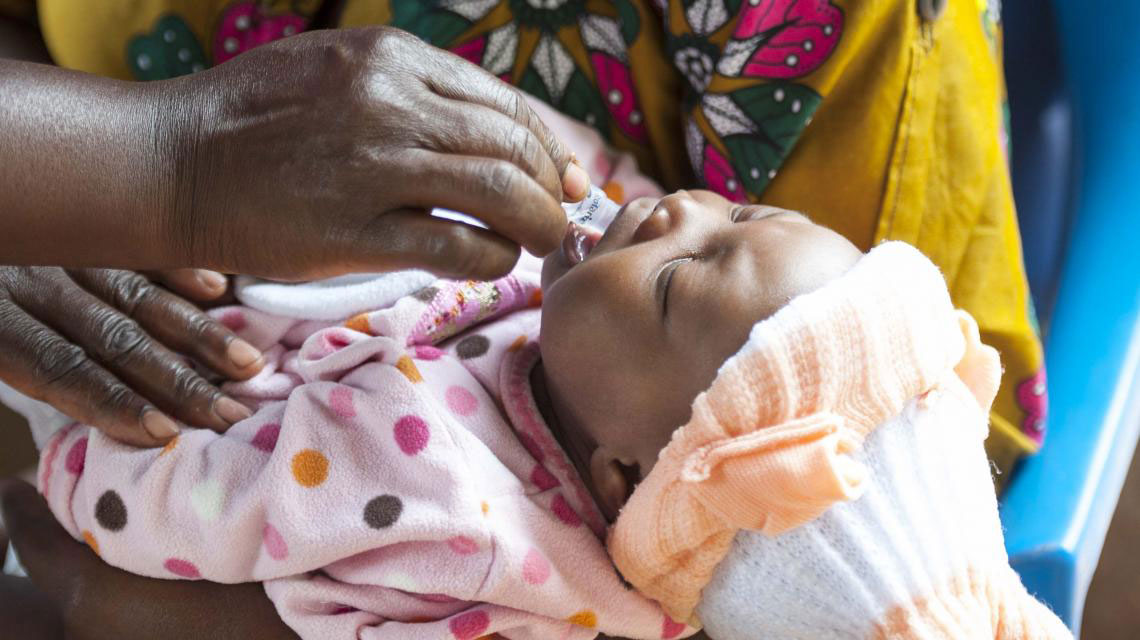
A child is given rotavirus vaccine to protect them from diarrhoea, a disease that can be lethal for young children under the age of 5. The vaccine was added into the national schedule of the Expanded Programme on Immunization in Uganda in 2018. It is now available in health facilities throughout the country at no cost.
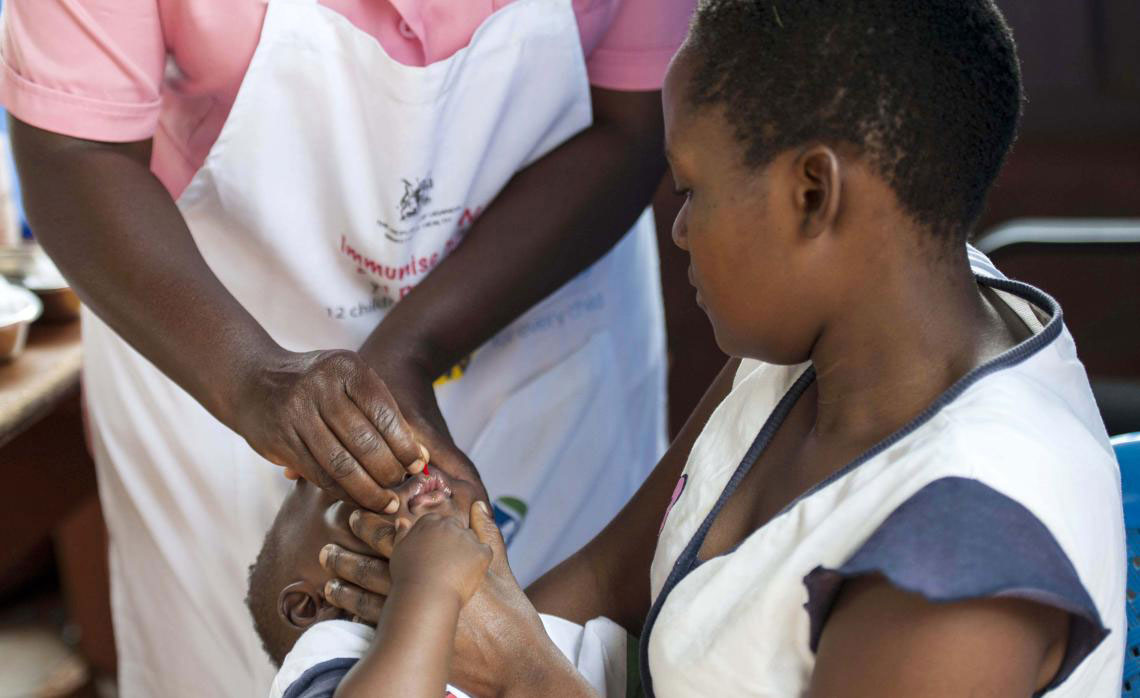
A child receives vitamin A drops during Integrated Child Health Days at Komamboga Health Centre III. Children between 6 and 59 months of age are also supplemented with vitamin A, to boost immunity and maintain good eye vision.
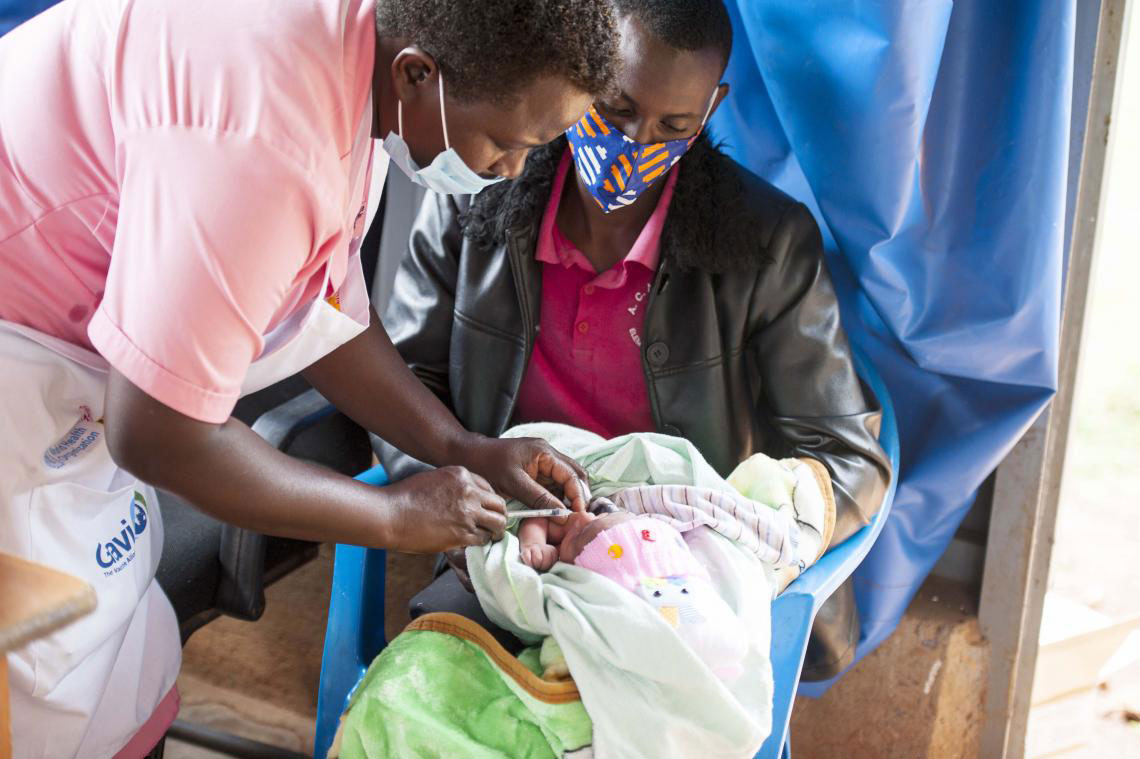
A father brings his newborn baby from the ward for immunization. Male partners are encouraged to accompany the mothers for Integrated Child Health Days as they play an important role in their children’s health and well-being.
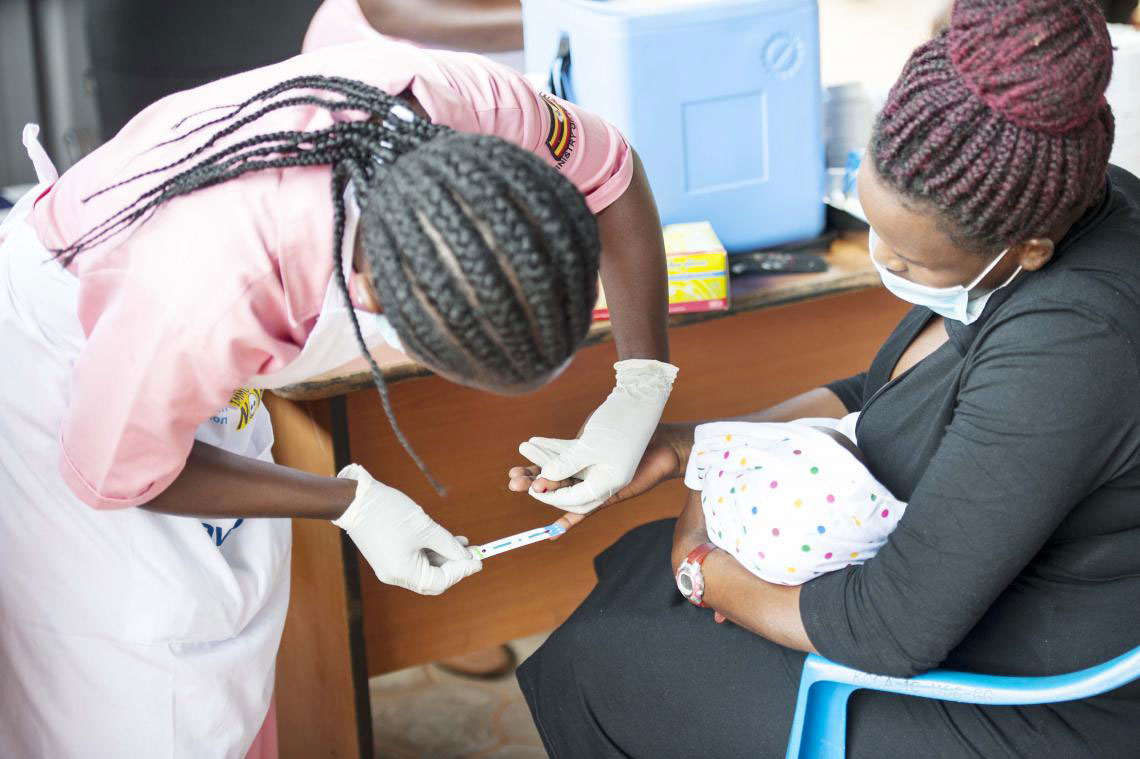
A mother who has brought her child for immunization also gets an HIV test and she receives her results in a few minutes. HIV testing and early infant diagnosis for children from 6 weeks to 18 months are among the services provided during Integrated Child Health Days.
We perform HIV tests for mothers when they bring their children at 6 weeks, it is part of the package.

